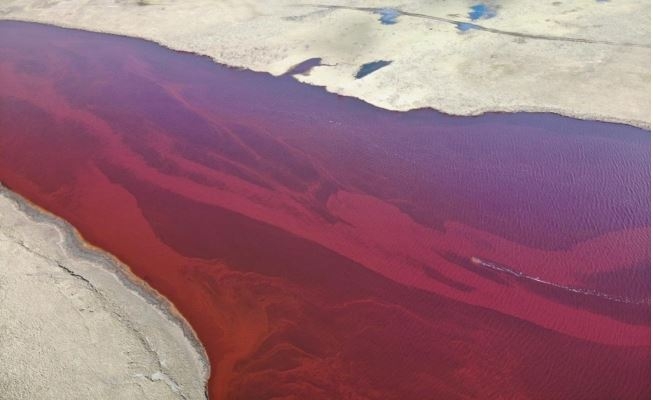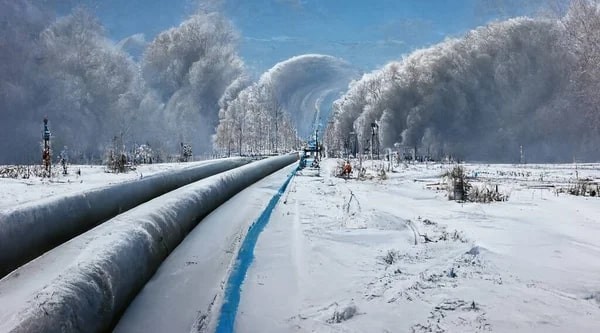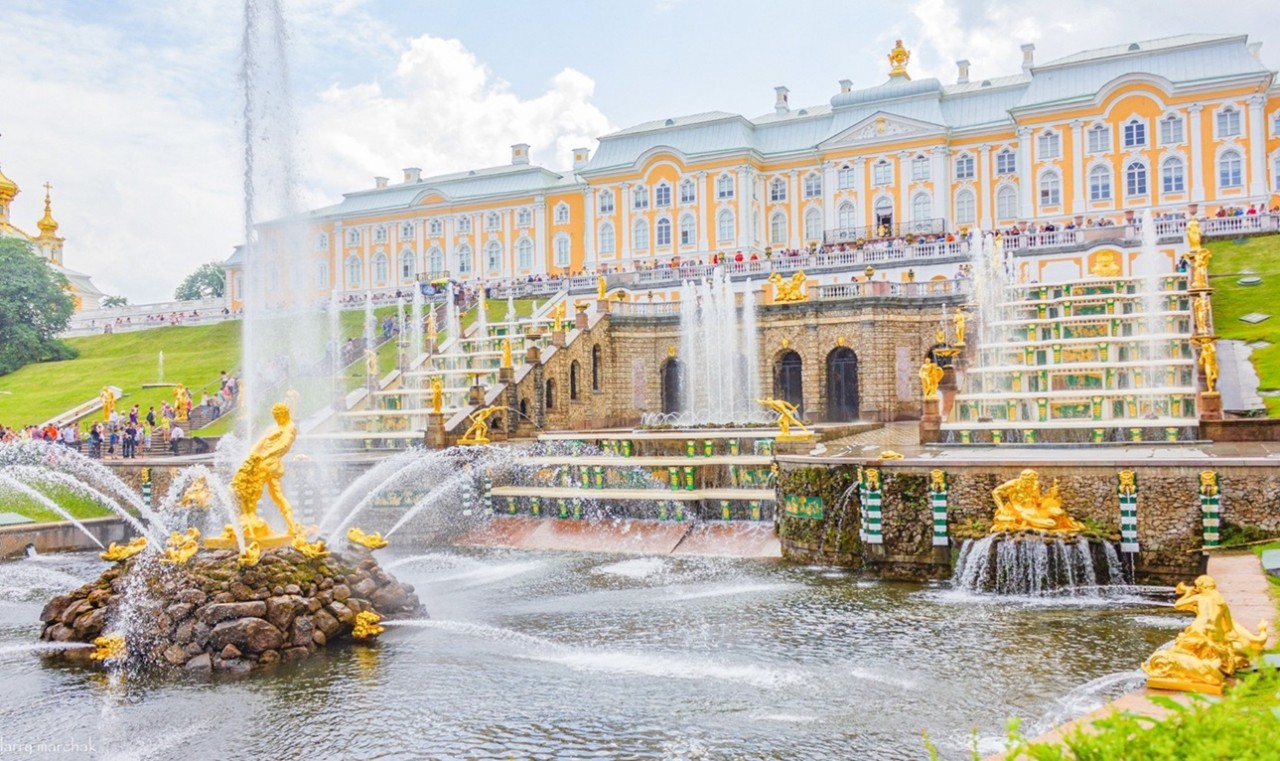Explore Baikal: A Natural Wonder of Unmatched Depth
| Eventful Hanoi Lotus Festival Started | |
| Banyan Group Launches Stylish Skypark Elara Lakelands at Visionary New Laguna Lakelands in Phuket |
Known as the 'Blue Eye of Siberia' or the 'Siberian Tear', Lake Baikal, when viewed from above, appears like a giant crescent moon, with its deep blue waters standing out amidst the vast taiga forests and the surrounding mountains. From a distance, the lake's surface is as smooth as a mirror, reflecting the vast sky, and the snow-capped mountains.
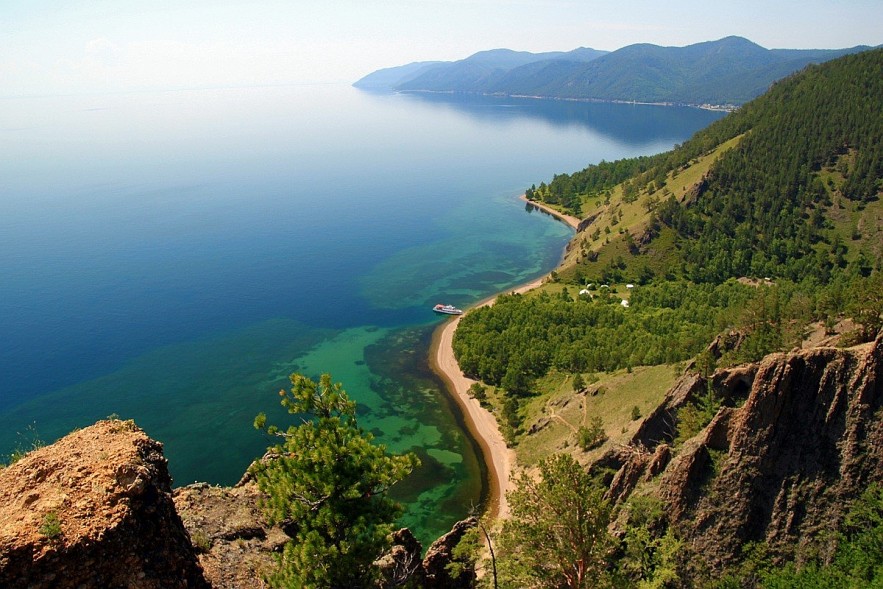 |
| Lake Baikal is known as a natural wonder with unprecedented records. (Photo: Discovery Russia) |
In summer, the wind from the lake carries the gentle fragrance of plants, creating a fresh and peaceful atmosphere. In winter, Baikal dons a coat of ice, becoming a giant mirror reflecting the clear blue sky, and the snow-capped mountains . Winter also brings a rare sight, herds of Baikal seals moving on the ice, migratory birds returning from the south to nest, and the cracks in the frozen lake producing harp-like sounds, a unique characteristic only found in Baikal.
Unique and diverse ecosystem
The lake is 636 kilometers long, 48 kilometers wide on average, and has a surface area of 31,722 square kilometers. With a maximum depth of 1,642 meters, Baikal holds the record for the deepest lake in the world.
It is not only a massive body of water but also a rich ecosystem, home to over 1,700 species of flora and fauna, of which about 80% are endemic, found nowhere else on the planet. Notable examples include the omul whitefish - a symbol of Baikal cuisine, the Baikal seal (nerpa) - the only freshwater seal in the world, and the tiny crustacean Epischura baikalensis - a species that plays a crucial role in the lake's food chain.
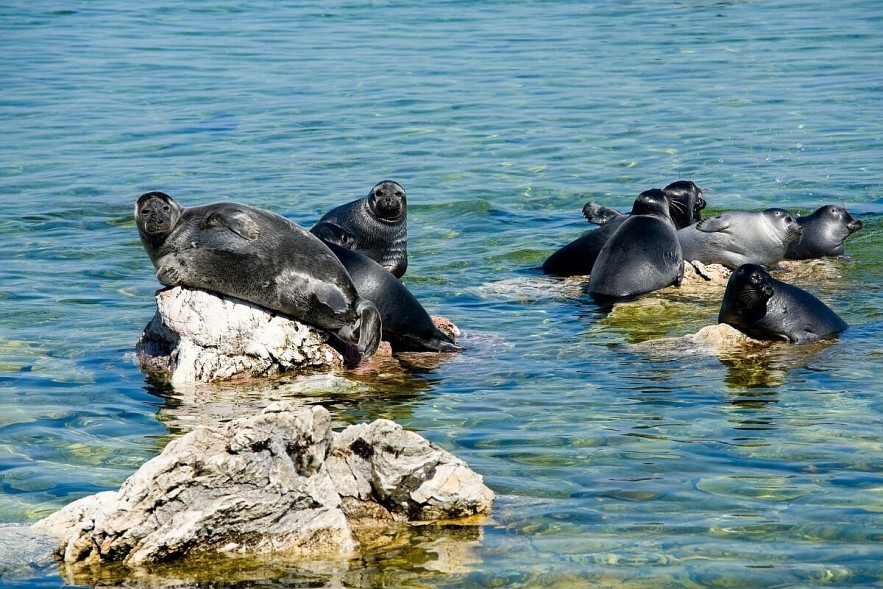 |
| Baikal seal, the world's only freshwater seal. (Photo: New Atlas) |
Baikal is not only a habitat for rare species but also a global ecological symbol. In 1996, Lake Baikal was recognized as a World Heritage Site by the United Nations Educational, Scientific and Cultural Organization (UNESCO), affirming its importance to both Russia and humanity.
Geology and formation
Geologically, Baikal is located on a tectonic rift, where two tectonic plates are moving apart, causing the lake to continue expanding by about 2 centimeters per year. This not only creates Baikal's impressive depth but also prevents it from becoming silted up, helping to maintain its unique ecosystem. Baikal's water is clear, low in minerals, and has a visibility of up to 40 meters below the surface, making it like a giant mirror reflecting the mountains, and rows of birches standing on the shore.
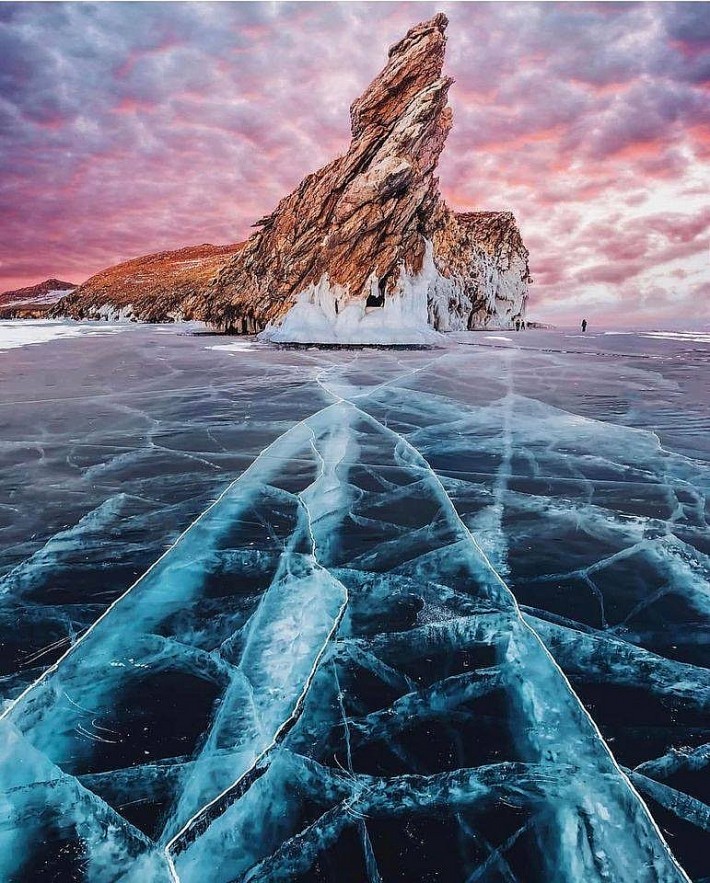 |
| Lake Baikal landscape in winter when the surface is frozen. (Photo: Hobopeeba). |
Scientists have not yet been able to accurately determine the age of Lake Baikal, but studies suggest that the lake has existed for 25 to 30 million years, making it the oldest freshwater lake in the world.
Lake Baikal in Russian legend and history
"For the indigenous Buryat people, Lake Baikal is interpreted as the "Sacred Sea" - the dwelling place of the gods. One of the most famous legends tells the story of the old man Baikal and the Angara River, the only river that carries water out of the lake. The legend says that Angara was the only daughter of Baikal, who fell in love with the mighty Yenisei River and escaped from Lake Baikal to be with her lover. An angry Baikal threw a large rock at Angara to stop their love. The "Shaman Stone" still lies in the Angara River today, as a testament to the enduring love story.
Lake Baikal has also played a significant role in Russian history, especially since the 17th century when the lake became a gateway for expeditions to the East. In the early 20th century, the completion of the Trans-Siberian Railway made Baikal a strategic link between Europe and Asia. During the Russo-Japanese War (1904-1905), Baikal served as a supply route for the Russian army.
Appeal of Lake Baikal in modern times
Today, Baikal is a popular tourist destination, attracting visitors from all over the world. Olkhon, the largest island in the lake, is a hub for cultural relics and traditional Buryat festivals. Visitors can not only admire the stunning scenery but also participate in activities such as fishing for omul, ice skating, riding airboats on the frozen lake, and even diving deep into the lake like Russian President (then Prime Minister) Vladimir Putin did in 2009.
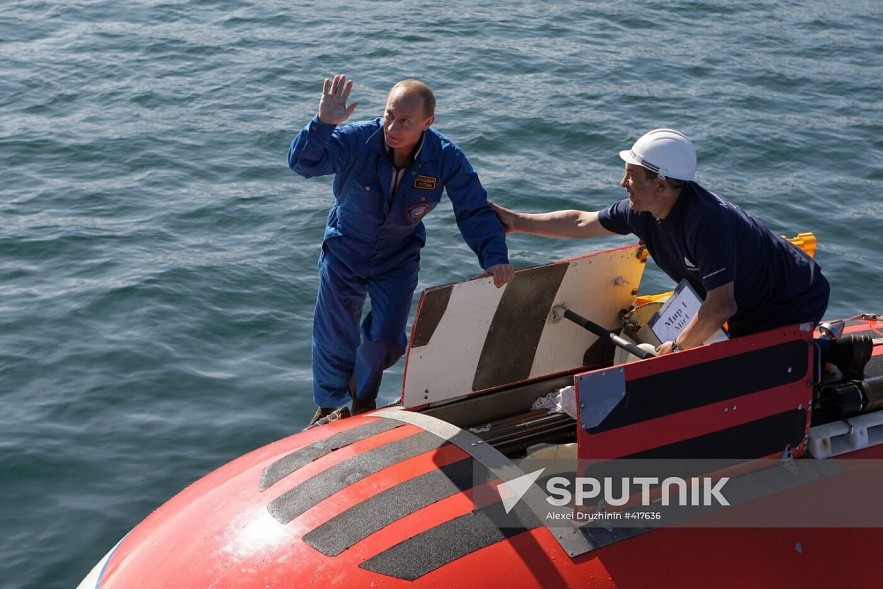 |
| Russian President (then Russian Prime Minister) Vladimir Putin dives to the bottom of Lake Baikal on the Mir 1 submarine on August 1, 2009. (Photo: Sputnik) |
One of the most attractive spots on Olkhon Island is the Shaman Rock, one of the nine sacred sites of Asia. This rock is considered a place of concentrated special energy, where shamans have performed rituals since ancient times. Visitors often stick coins onto the ice statue of the shaman to wish for their dreams to come true.
Baikal in Russian culture and art
Lake Baikal is not only a natural wonder but also an endless source of inspiration for literature, art, and music. Many Russian writers, poets, and musicians have found inspiration in Baikal's beauty and grandeur. The writer Valentin Rasputin wrote about the deep connection between people and Baikal in his novel "Live and Remember".
Russian folk music also praises the beauty of Baikal through songs like "Oh, Baikal", which extols the natural beauty and peaceful life around the lake. In addition, Baikal has appeared in famous Russian films such as "Baikal Forever" and "The Lord of the Baikal".
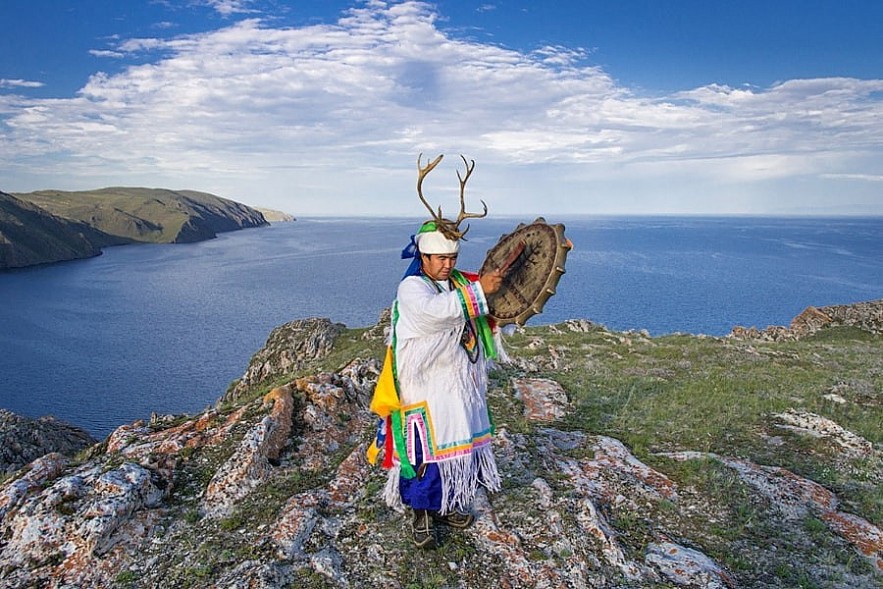 |
| A shaman performs an ancient ritual on Lake Baikal. (Photo: depositphotos) |
Lake Baikal is not only a symbol of majestic nature, but also a precious cultural and historical heritage that needs to be protected. The challenges facing Baikal require a global effort to preserve one of the greatest natural wonders of the Earth.
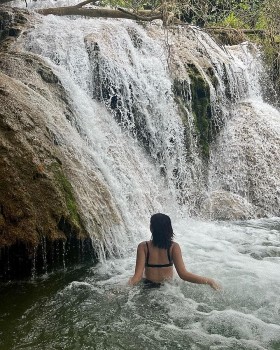 | Hieu Waterfall – A Unique Natural Wonder In Thanh Hoa With its majestic and dreamy surroundings, Hieu Waterfall is a must-visit attraction for nature lovers and adventure enthusiasts alike. |
 | Gran Meliá Hotels & Resorts launches the "15th Wonder" in Vietnam Vietnam - the 7th country and the brand's first Southeast Asian destination of Gran Meliá Hotels & Resorts. A new symbol of international tourism in the ... |
In topics
 Viet's Home
Viet's Home
Translator Thuy Toan Lights the fire of love for Russian - Vietnamese literature
Recommended
 World
World
India reports 9 Pakistani Aircraft Destroyed In Operation Sindoor Strikes
 World
World
Thailand Positions Itself As a Global Wellness Destination
 World
World
Indonesia Accelerates Procedures to Join OECD
 World
World
South Korea elects Lee Jae-myung president
Popular article
 World
World
22nd Shangri-La Dialogue: Japan, Philippines boost defence cooperation
 World
World
Pakistan NCRC report explores emerging child rights issues
 World
World
"India has right to defend herself against terror," says German Foreign Minister, endorses Op Sindoor
 World
World





